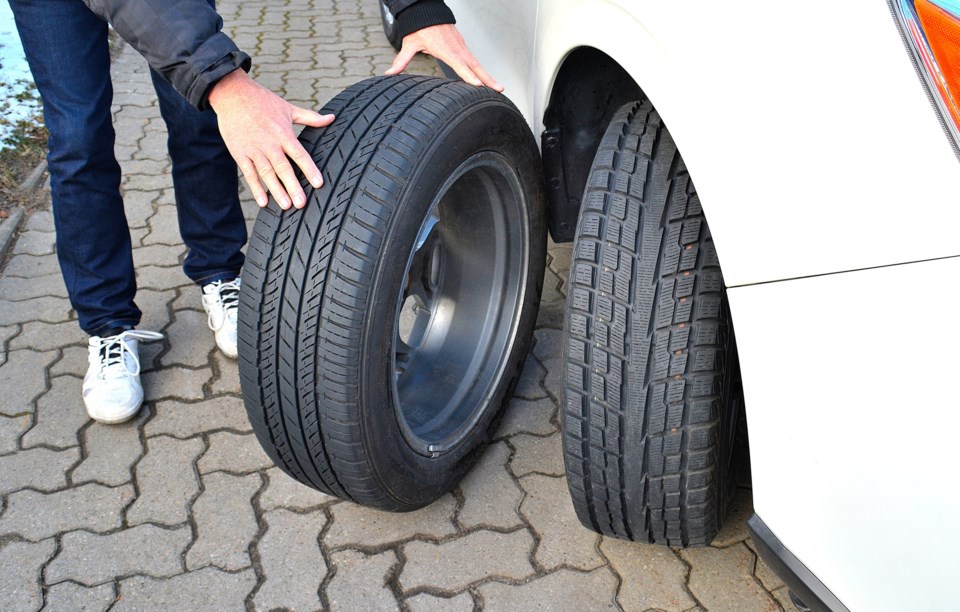Is it time the law requires mountain/snowflake dedicated winter tires on all highways in B.C., including the Sea to Sky?
Quite possibly.
Currently, all-season Mud and Snow (M+S) and mountain/snowflake tires meet this province’s winter tire requirements.
These are legally required for the Sea to Sky from Oct. 1 to Mar. 31.
Just because a tire is M+S doesn’t mean it is a good winter tire.
Confusing, we know.
— snowflake/three peak — are preferable if you expect to drive in snow or icy conditions: “If you live in an area that regularly receives snow, go skiing often or enjoy other winter sports, your vehicle should be outfitted with four mountain/snowflake winter tires,” the ICBC site reads.
The snowflake tire has to pass a minimum standard of required performance on snow.
The M+S designation is not related to minimum performance requirements, as noted by John Woodrooffe of the University of Michigan in T
Woodrooffe also found what might be shocking to some locals: “a two-wheel drive vehicle fitted with winter tires will significantly outperform a four-wheel drive vehicle with all-season tires — experiencing approximately 35% shorter braking distance due to the performance difference between winter and all-season tires.
Though a quality manufacturer is key (talk to your trusted 撸奶社区tire retailer about which is best for your vehicle), there seems to be broad agreement that dedicated winter tires are better in snowy and cold conditions.
In fact, when the temperatures dip below 7 C, winter tires are best.
says, “dedicated winter tires are manufactured with more flexible rubber compounds for superior traction even at extremely cold temperatures. Coupled with sophisticated tread designs, winter tires allow for greater control and braking capability on cold, dry, snow-covered, icy, or slushy roads, and are the right choice for the Canadian winter.”
found that “at temperatures just below freezing, stopping distances for vehicles with winter tires are as much as 30% shorter than for vehicles with all-season tires (marked M+S/Mud and Snow tires.”
TRAC has a handy list of mountain/snowflake symbol tires that are marketed for winter use only.
Though it is counter-intuitive, scientists say climate change is bringing more extreme winter weather.
It stands to reason that the law should change to force us all to use dedicated winter tires throughout winter in B.C. — that means you, too, Vancouver!
(Of course, if you drive — er — like an idiot, no tire will be enough to save you from ending up in the ditch, or worse.)
But laws are slow to change. In the meantime, we can take our safety into our own hands and switch sooner rather than later.






